What Persists
Georgia Review Books Edited by Stephen Corey
Edited by Stephen Corey
What Persists
Selected Essays on Poetry from
The Georgia Review, 19882014
JUDITH KITCHEN

2016 by the University of Georgia Press
Athens, Georgia 30602
www.ugapress.org
All rights reserved
Designed by Melissa Bugbee Buchanan
Set in Adobe Garamond Pro
Printed and bound by Sheridan Books
The paper in this book meets the guidelines for
permanence and durability of the Committee on
Production Guidelines for Book Longevity of the
Council on Library Resources.
Most University of Georgia Press titles are
available from popular e-book vendors.
Printed in the United States of America
20 19 18 17 16 C 5 4 3 2 1
Library of Congress Cataloging-in-Publication Data
Names: Kitchen, Judith.
Title: What persists : selected essays on poetry from The Georgia Review,
1988-2014 / Judith Kitchen.
Description: Athens : The University of Georgia Press, 2016.
Identifiers: LCCN 2015032703 | ISBN 9780820349312 (hardcover : alk. paper) |
ISBN 9780820349305 (ebook)
Subjects: LCSH: Poetry.
Classification: LCC PS3561. 1845 A6 2016 | DDC 814/.54dc23
LC record available at http://lccn.loc.gov/2015032703
What Persists was made possible in part by the generous gifts from the friends, fans, and family of Judith Kitchen.
Mary C. Blew
Nancy Boutilier
Kevin Clark
Jennifer Culkin
David Huddle
Nancy Geyer
Greg Glazner
Kate Carol De Gutes
Rebecca McClanahan
Gerry McFarland
Kent Meyers
Kay Mullen
Scott Nadelson
Ann Whitfield Powers
Lia Purpura
Christine Robbins
Stanley Rubin
Marjorie Sandor
Hilary J. Schaper
Tina Schumann
Kathi R. Shannon
Peggy Shumaker
Joseph Usibelli
Georgia Whitney
And anonymous friends.
Contents
On William Stafford, Heather McHugh, Linda Pastan, Brigit Pegeen Kelly, Li-Young Lee
On Pamela Gross, Jane Kenyon, Li-Young Lee, Thomas Lux, Wayne Dodd
On Stanley Plumly, William Matthews, Pamela Stewart, Albert Goldbarth, Les Murray
On C. K. Williams, W. S. Merwin, Judith Hall, Deborah Pope, Gerald McCarthy,
On Stanley Kunitz, Donald Justice, Gerald Stern, Michael Harper
On Charles Wright, Robert Hass, Maxine Kumin, Paul Zimmer, Lisel Mueller, Leslie Norris
On Mary Karr, Billy Collins, Thylias Moss, Ted Hughes
On George Szirtes, Paul Muldoon, Albert Goldbarth, Suzanne Paola, Naomi Shihab Nye
On Les Murray, Yehuda Amichai, Derek Walcott, Jane Cooper, Robert Wrigley, James Richardson, Gregory Djanikian, Stephen Dunn
On Madeline DeFrees, Linda Gregerson, Li-Young Lee, Philip Schultz, Natasha Trethewey
On Albert Goldbarth, Quan Barry, Joseph Stroud, Ann Townsend, Kevin Prufer, Linda Bierds
On Albert Goldbarth, Carl Phillips, Robert Wrigley, Rebecca McClanahan, Bruce Beasley, Paul Zimmer, John Engels
On Michael OBrien, Meghan ORourke, Robert Hass, Philip Schultz, Stanley Plumly
On Tony Hoagland, Terrance Hays, Connie Wanek, Peggy Shumaker
On James Richardson, Robert Wrigley, Elizabeth Bradfield, Robert Cording
On Marvin Bell, Jane Hirshfield, Kevin Prufer, Kevin Goodan
On Natasha Trethewey, Kathleen Flenniken, John Hodgen, Alice Derry, Lola Haskins
On Michael Mlekoday, Kerrin McCadden, David Koehn, Laura Donnelly, Kasey Jueds
Foreword
And the Kitchen Sink: Judith Kitchens
Vision of American Poetry, 19882014
STEPHEN COREY
FIRST WE NEVER THOUGHT it could last so long, and then we came to think it would never end; we were wrong on both counts.
In 1991, Georgia Review editor Stanley W. Lindberg announced that Judith Kitchen and Fred Chappell would be regular essay-reviewers of new poetry for the journal, each producing two substantial commentaries per year. Judiths invitation was made on the strength of Speaking Passions (Summer 1988)which leads off this bookand A Want Ad (Spring/Summer 1990), both produced during the time when we were auditioning replacements for Peter Stitt, who reviewed poetry for the Review from 197787 before departing to edit a new literary journal, The Gettysburg Review.
Fred supplied fine discussions through 1997, at which time he stepped down to give more time to other pursuits. Judith, however, kept going... and going... and going, even through many years of uncertain health brought on by two potentially fatal conditions. In late October of 2014, from an intensive-care hospital bed in Seattle, Judith made final revisions to Da Capo al Coda, her study of first books by five promising poets of widely varying ages for our Winter 2014 issue. On 6 November 2014, at the age of exactly seventy-three years and three monthsshe became in 1945 a Hiroshima babyJudith died at home with her longtime husband Stanley Rubin close at hand. After Judiths death, with Stans blessing, I added Da Capo al Coda to the book because it really does represent her final word in more ways than one. Also, to complete the record, I created an Appendix entry for her penultimate essay, When the River Is Ice (Summer 2014).
Across twenty-seven years, Judith wrote some fifty lengthy essay-reviews for The Georgia Review, with the emphasis on essay. John Stilgoe, one of the outside readers for this book, called Judith Kitchen one of the two or three leading poetry critics in the United States and one of the five or so in the English-speaking world. What Persists is aptly and accurately titled, because Judith did not dash off journalistic reviews meant to be held in mind only until another round of the same popped up from some other hand a week or a month later. Judiths essaying of American poetry is always mindfully broad-sweeping and minutely particular, always so wisely and passionately crafted that it manages to speak engagingly and instructively to both expert and neophyte readers.
The Georgia Review and the literary world have been inevitably diminished by the loss of Judith Kitchens voice, and I am personally saddened that Judith did not live to see this book come off the presses. I had told her for years that I believed her essay-reviews deserved publication as a body of work, and when The Georgia Review and the University of Georgia Press reached an agreement in 2013 for a Review-generated book series I knew exactly what the inaugural title should be. In early 2014 Judith herself made the selection of pieces and wrote her introduction, and then at my suggestion she createdbeautifully and effectivelythe appendix that gives thumbnail sketches of all her other essay-reviews and is, literally, a vital part of the collection.
Judith opened that initiating 1988 study, Speaking Passions, with a comment from the literary critic Leslie Fiedler about Randall Jarrell (191462), widely regarded as one of the great poetry critics of the twentieth century:
Jarrell is everywhere the man who has just read something he loves or hates, sometimes the man baffled by what surprised him into admiration or exacerbated him beyond patience by its ineptitude; but always the man speaking his passion, rather than an embodied institution pronouncing judgment. He is resolutely unsystematic, committed to no methodology or aesthetic theoryresponsible only to his own responses, hushed only before the mystery of his own taste.
Next page

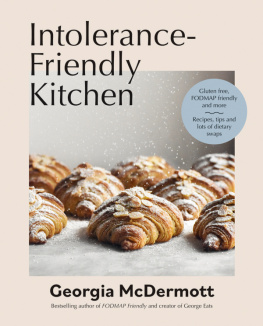
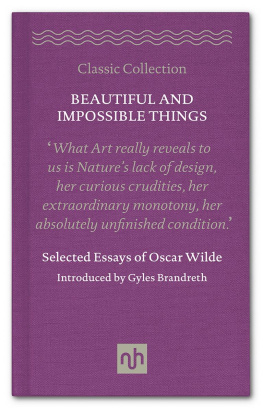
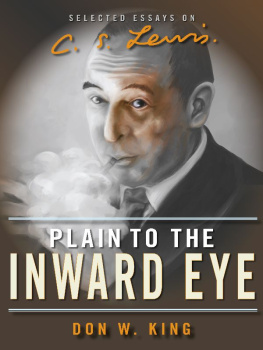
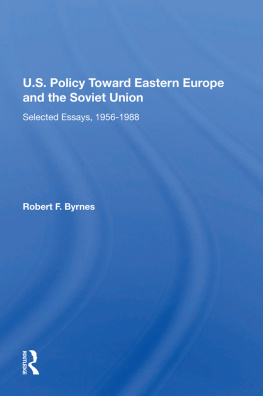
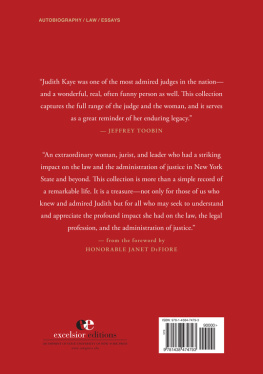
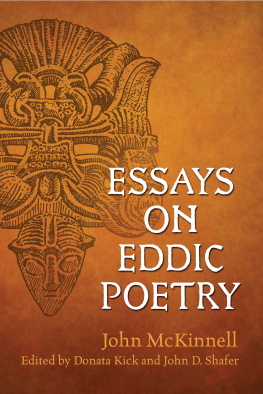
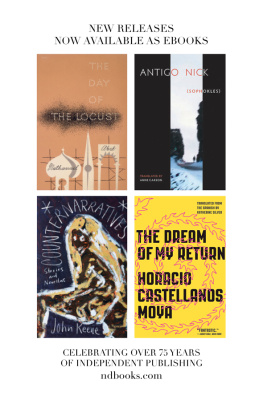
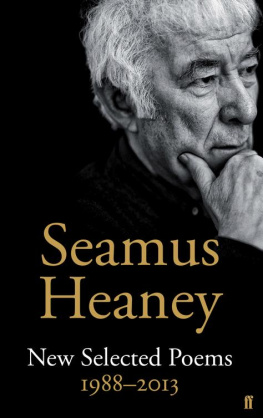
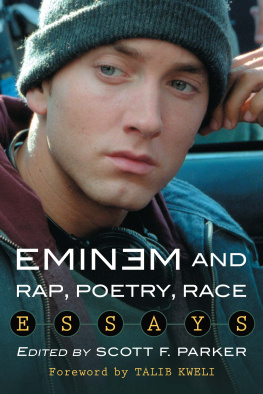
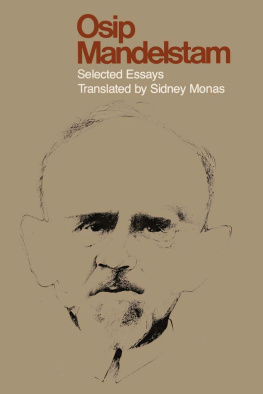
 Edited by Stephen Corey
Edited by Stephen Corey